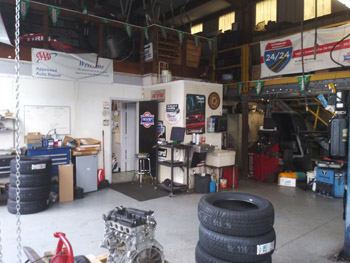All Categories
Featured
While it's easy to take your auto battery for provided, recognizing how to check its health and wellness can aid prevent inconvenient break downs. Normal checks can expand the life of your battery and ensure your vehicle runs efficiently.
Why Battery Health And Wellness Matters. Your auto's battery plays a vital role in starting the engine and powering electronic systems like lights, cooling, and the radio. A stopping working battery can create slow-moving starts, malfunctioning electronics, or perhaps leave you stranded. Batteries normally wear with time, but recognizing when they get on the edge of failing can save you from these circumstances.
Indications That Your Battery May Be Weak. Prior to you dive into inspecting the battery yourself, it's helpful to be familiar with some usual warning indications that suggest your battery could need focus:

Slow Engine Crank: If your engine takes longer to start, it might be an indication that the battery is shedding its power. Dim or Flickering Lights: When the vehicle is running, inspect the headlights. If they appear dim or flicker while you're idling, your battery could be having a hard time. Check Engine Light or Battery Warning Light: Several modern-day cars will certainly display a battery warning light on the control panel if there's an issue with the battery or charging system. Corrosion: Visible deterioration around the battery terminals is a clear indication of a problem. This build-up can disrupt the electrical connection, bring about poor performance. Constant Jump Begins: If you consistently need to jump-start your car, your battery is likely near the end of its life and need to be changed. Just how to Inspect Your Cars and truck's Battery Health and wellness. Examine the Battery for Physical Damage:. Beginning by evaluating the battery for fractures, leakages, or bulging. Physical damage to the battery situation can indicate that the battery goes to risk of failure. If you observe any leakages or rust, take caution, as this can be dangerous.
Examine the Voltage with a Multimeter:. A basic and accurate way to inspect your battery health and wellness is by gauging its voltage. Below's how you can do it:

Establish your multimeter to DC voltage and select a 20-volt variety. With the cars and truck off, place the red (positive) probe on the favorable terminal and the black (negative) probe on the adverse terminal of the battery. A healthy battery should check out around 12.6 volts or more. If the voltage is listed below 12.4 volts, the battery may be weak and need charging or replacement. If it's under 12 volts, it's time to consider obtaining a new battery. Execute a Tons Examination:. To truly analyze just how well your battery performs under tension, a tons test is excellent. This examination is best done by a professional auto mechanic, but you can carry out a basic load test if you have a battery load tester. Below's a straightforward way to do it:
Transform off the cars and truck, and gauge the voltage making use of a multimeter as explained above. Start the vehicle and gauge the voltage once more. If the voltage drops considerably listed below 12.4 volts when the engine is running, the battery is struggling to maintain cost and might need replacement. Check the Generator Result:. A faulty generator can also cause battery concerns, as it's responsible for recharging the battery while the vehicle is running. If the analysis is listed below this array, the alternator might not be correctly billing the battery, which can lead to battery failing over time.
What to Do If Your Battery Is Weak. If your tests show that your battery's voltage is low or it's not holding a charge, there are a couple of things you can do:
Cost the Battery: If the voltage is slightly low (12-12.4 volts), try billing the battery with a car battery charger. If it holds a cost, it may be able to last a little much longer. Replace the Battery: If the battery's voltage is under 12 volts or it struggles to hold a charge, it's likely time for a substitute. A lot of automobile batteries last 3-5 years, so if your battery is nearing that age, it's worth changing it before it dies entirely. When to Change Your Auto's Battery. While batteries can last for a number of years, it's crucial to replace them before they fall short totally. Below are some elements that may suggest it's time for a substitute:
Age: If your battery is greater than 3-5 years old, it's a great idea to replace it, even if it hasn't shown indicators of failure yet. Constant Problems Beginning the Auto: If your automobile has difficulty beginning even after being jump-started, it's time to get a brand-new battery. Corrosion or Leaks: If deterioration or leaking shows up on the battery, it may be a sign that it's getting to the end of its life. Verdict: Regular Battery Maintenance for Longevity. Checking your car's battery health is a simple but vital part of car upkeep. By maintaining an eye out for indication and doing standard tests, you can identify issues early and prevent the aggravation of a dead battery. Consistently checking your battery will make certain that your vehicle runs smoothly and begins accurately whenever, and it will assist you stay clear of unanticipated malfunctions. If your battery is on its last legs, changing it before it fails will certainly save you from the hassle and aggravation of being stranded.
Latest Posts
Explore Oil Changes & More: Complete Auto Care Solutions from Montclare Auto Repair
Explore Oil Changes & More: Complete Repair Options from Montclare Auto Repair
Check Out Affordable Auto Repairs with Montclare’s Limited-Time Service Specials
More
Latest Posts
Explore Oil Changes & More: Complete Auto Care Solutions from Montclare Auto Repair
Explore Oil Changes & More: Complete Repair Options from Montclare Auto Repair
Check Out Affordable Auto Repairs with Montclare’s Limited-Time Service Specials
